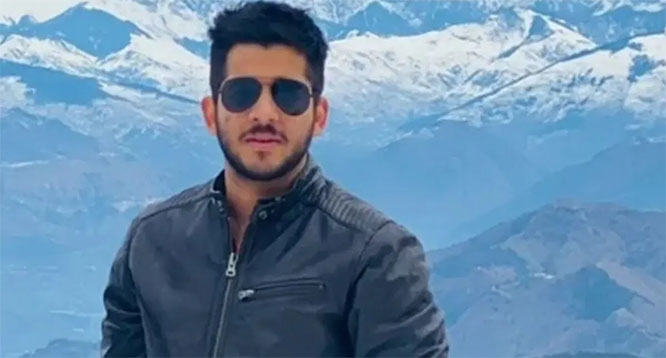Caracas, Jun 28: A Venezuelan police helicopter strafed the Supreme Court and a government Ministry on June 27, 2017, escalating the OPEC nation's political crisis in what President Nicolas Maduro called an attack by “terrorists” seeking a coup.

The aircraft fired 15 shots at the Interior Ministry, where scores of people were at a social event, and dropped four grenades on the court, where judges were meeting, officials said. However, there were no reports of injuries.
“Sooner rather than later, we are going to capture the helicopter and those behind this armed terrorist attack against the institutions of the country,” Mr. Maduro said. “They could have caused dozens of deaths,” he said.
The 54-year-old socialist leader has faced three months of protests from opposition leaders who decry him as a dictator who has wrecked a once-prosperous economy. There has been growing dissent too from within government and the security forces. At least 75 people have died, and hundreds more been injured and arrested, in the anti-government unrest since April 2017.
Demonstrators are demanding general elections, measures to alleviate a brutal economic crisis, freedom for hundreds of jailed opposition activists, and independence for the opposition-controlled National Assembly legislature. Mr. Maduro says they are seeking a coup against him with the encouragement of a U.S. government eager to gain control of Venezuela's oil reserves, the largest in the world.
Venezuela's government said in a communique the helicopter was stolen by an investigative police pilot called Oscar Perez, who declared himself in rebellion against Mr. Maduro. A video posted on Mr. Perez’s Instagram account around the same time showed him standing in front of several hooded armed men, saying an operation was underway to restore democracy. Mr. Perez said in the video he represented a coalition of military, police and civilian officials opposed to the "criminal” government, urged Mr. Maduro's resignation and called for general elections. “This fight is... against the vile government. Against tyranny,” he said.
Witnesses reported hearing several detonations in downtown Caracas, where the pro-Maduro Supreme Court, the presidential palace and other key government buildings are located. Opponents to Mr. Maduro view the Interior Ministry as a bastion of repression and also hate the Supreme Court for its string of rulings bolstering the president's power and undermining the opposition-controlled legislature.
Vote controversy
Mr. Maduro, who replaced Hugo Chavez in 2013, is pushing a July 30, 2017 vote for a special super-body called a Constituent Assembly, which could rewrite the national charter and supersede other institutions such as the opposition-controlled congress.
He has touted the assembly as the only way to bring peace to Venezuela. But opponents, who want to bring forward the next presidential election scheduled for late 2018, say it is a sham poll designed purely to keep the socialists in power.
They are boycotting the vote, and protesting daily on the streets to try and have it stopped. Opposition leaders call Mr. Maduro a tyrant who has wrecked a once-prosperous economy, while he calls them violent coup leaders following U.S. orders.
Mr. Maduro, who accuses Washington of seeking to control the nation's oil wealth, said the “destruction” of Venezuela would lead to a huge refugee wave dwarfing the Mediterranean crisis.
“Listen, President Donald Trump,” he said earlier on June 27, 2017. “You would have to build 20 walls in the sea, a wall from Mississippi to Florida, from Florida to New York, it would be crazy... You have the responsibility: stop the madness of the violent Venezuelan right wing.”
Opposition to the July 30, 2017 vote has come not just from Venezuelan opposition parties, but also from the chief state prosecutor Luisa Ortega and one-time government heavyweights like former intelligence service boss Miguel Rodriguez.
At a news conference on June 27, 2017, Mr. Rodriguez criticised Mr. Maduro for not holding a referendum prior to the Constituent Assembly election, as his predecessor Chavez had done in 1999. “This is a country without government, this is chaos,” he said. “The people are left out... They (the government) are seeking solutions outside the constitution... That deepens the crisis.”
Mr. Maduro said an ex-pilot of Mr. Rodriguez was involved in the June 27, 2017 helicopter attack.







Comments
Add new comment